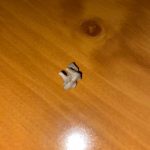Hello,
It sounds like you have done a pretty thorough work up. The places I think that you should look into are;
Repeat the blood work. It sounds like hyperthyroidism. I always check a free T4 on top of the thyroid T4. I also check a urine. If you haven’t sent a fecal to the lab too.
After that the ultrasound and X-rays are where I look.
You are still at the place where the diagnosis is eluding you. That’s where you need to focus.
PS. Just for the record I don’t love starting pred until you have a diagnosis. It can obscure your diagnostics.
Good luck. I hope this helps.











Hello,
I’m sorry to hear about your cat.
I think that the question is how to help manage the constipation? I think that the weight loss and progression of the kidney disease is Kelly part of the problem. Have you checked her thyroid function? I typically see these older cats having this disease develop with the others your cat has. This disease also causes muscle loss. But this one has an available treatment option.
I think that you should recheck your blood work and see if’s his might be part of the reason for the constipation.
Also try to encourage play and exercise. It will help her fell better and eat better and also help the internal muscles that assist the colon and avoid constipation.